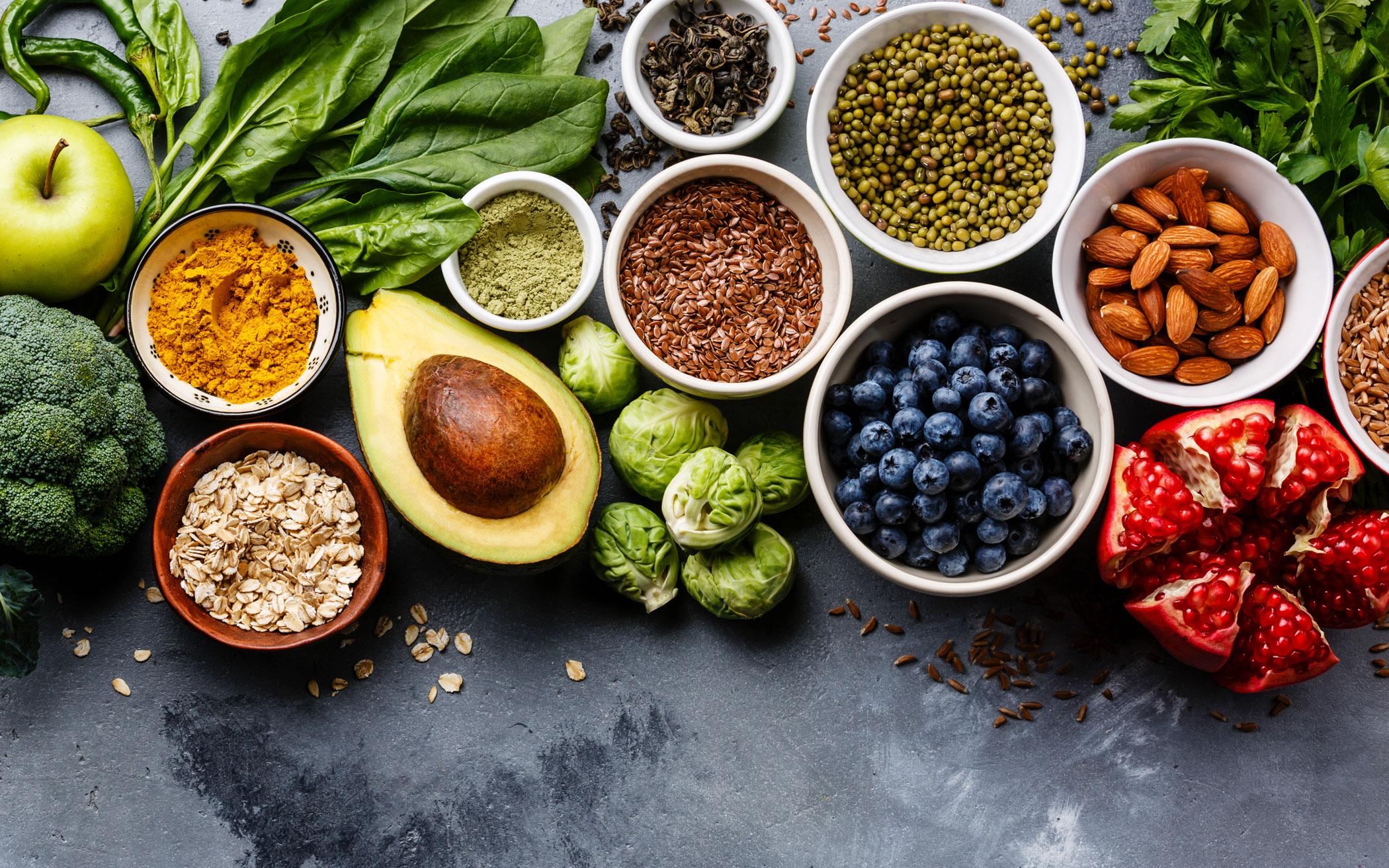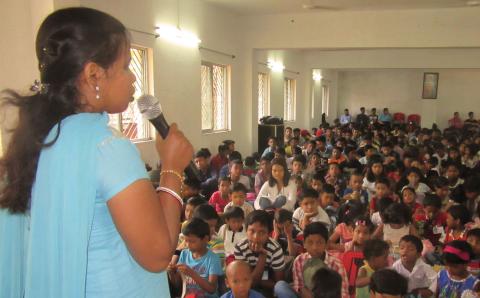My paternal grandfather was an egg and small-crop farmer. My maternal grandfather was an herbicide chemist who worked to promote the green revolution in agriculture. My dad, now an economics professor, is still a hardworking farm boy at heart. He never wastes food because he knows what went into raising it, and he can fix almost anything with just a few tools; all my home-improvement projects await his visits. My mom’s cousin is an executive at one of America’s largest pork producers. As an elementary schooler, I visited the processing floor of a meatpacking plant with a mixture of pride and wide-eyed bewilderment. I wasn’t raised on the farm, but favorite activities with grandparents included riding tractors, shucking corn, exploring the chicken houses, and playing freeze tag with cousins behind Great-Grandpop’s butcher shed. I can’t claim genuine farm-boy cred, but I do owe my existence, my spiritual aspirations, and many of my most cherished experiences to good Christian people in agriculture.
It might seem odd, then, that a healthy portion of my vocational bread and butter these days is asking tough questions about our food system and its unintended consequences for creation. The oddity is increased by the fact that I’m raising these questions from my position as a professor at a Christian Reformed institution whose constituency has deep roots and significant continuing influence in industrial animal agriculture. Many of the classes I teach include students who live on large family farms or have had summer jobs in CAFOs (concentrated animal feeding operations). I have taught and advised the children of industry leaders in the pork, dairy, and beef sectors and count them among those with whom I’m proudest to have worked in 15 years of teaching. I’ve even visited a large family farm at the invitation of a student’s parent and given a presentation on the animal welfare movement to the managers of the farm. I understand why some think I’m biting the hand that feeds me, but blaming farmers for problems to which we all contribute is certainly not my intention.
What I hope to be doing, at least on my best days, is something like what Nicholas Wolterstorff calls “educating for shalom”—doing my small part as a philosophy teacher to inspire and equip the Christian community to live out our vision of a shared life of peace, justice, and deep enjoyment grounded in loving God and neighbor and caring for creation. If it seems that I think too highly of my profession, don’t be fooled. Being a philosopher often means being dreaded by students and avoided at parties. That’s because an occupational hazard of philosophy is asking people to reflect on cherished daily practices we usually take for granted, which can lead to uncovering inconvenient truths that require careful reconsideration of our habits.
I have fallen victim to this occupational hazard myself. If someone had told me 15 years ago that I would end up advocating for “greener” eating as a discipleship practice of shalom-inspired creation care, I’d have slathered up the nearest rack of ribs in defiant reply. My Mennonite background had taught me well that the active pursuit of peace and justice for human beings is central to living out the Christian vision. But it wasn’t until 2003, when I joined a Reformed community, that animals (and the good earth we share with them) came prominently into view as inherently valuable creatures of God whose flourishing shalom requires.
The Reformed theological vision is generous to animals, reflecting a deep and abiding appreciation for the sovereignty of God over all creation. It affirms the goodness of all creation and mandates that human beings follow the divine example of delighting in God’s creatures and taking loving care of them. It stresses the pervasive personal and institutional effects of human fallenness, the cosmic scope of Christ’s reconciling power (“every square inch,” as Abraham Kuyper famously said), and the call to be agents of renewal after Christ’s example in our personal and institutional lives.
Where some Christians are skeptical of science, the Reformed vision sees the findings of general revelation—what human beings discover about God and God’s plan through careful study of God’s world—as continuous with God’s special revelation in Scripture. And where some Christians shrink from engaging ideas and criticism from outside the church, the Reformed vision’s emphasis on common grace empowers us to look beyond our tradition for insight into God’s regenerating wisdom and our own shortcomings.
It is thus perfectly natural for Reformed Christians to declare that animals and the physical world are good and precious to God and that we have a duty to God to care for them. It is faithful to our vision to acknowledge that pedestrian things like our food system and eating habits aren’t just trivial matters of personal preference but are caught up in grander narratives of sin and redemption. And it is fitting that Reformed Christians, informed by confidence in general revelation and by humility as recipients of common grace, would seek counsel from environmental science, the study of animal behavior, and the animal welfare movement as we discern how to live out our biblical hope for shalom as 21st-century Christ-followers.
The good news is that the Reformed vision is theologically well suited to help us face the moral and environmental challenges raised by the need to feed almost 10 billion people by 2050 on a planet where arable land, water, and oil are increasingly scarce and the environment is increasingly unstable. But there’s no way to soft-pedal the bad news: There are strong reasons to believe that our collective default to the animal-heavy standard American diet is deeply out of resonance with our professed hope for shalom and our ability to live out this hope.
To appreciate how far-reaching the consequences of our food choices are, consider the implications of raising and slaughtering almost 10 billion land animals annually in the U.S. and Canada so that North Americans can eat almost twice the global average of meat per person per year (213 pounds for Americans, 154 pounds for Canadians). Feeding this many animals requires unsustainable amounts of oil, land, and water to grow grain—a commodity the subsidization of which causes political and economic problems for farmers around the world.
Raising these animals confronts us with dangerous concentrations of ecologically threatening manure and greenhouse gases and the risk of epidemic diseases such as bird flu. Processing this many animals at a profit means dangerous and often exploitative working conditions for a disproportionately minority workforce. And eating this many animals is strongly correlated with the rise of preventable diseases estimated to cost $314 billion a year for interventional medicine.
Counting the costs of the standard American diet to ourselves and our fellow human beings is a crucial step. But a truly shalomic imagination must count the costs to God’s other creatures too. Caring for animals was the very first responsibility bestowed to humankind by God—our very first chance to practice the capacities of love, power, and mercy that accompany the divine image within us. What, then, are the costs of our food system to the animals under our charge?
The vast majority of these 10 billion creatures are bred, housed, fed, transported, and slaughtered in industrial systems that consign them to short lives of crowded, sedentary confinement and deny them many of their most basic creaturely activities and enjoyments. The degree to which we bend every aspect of their existence to our convenience and profit raises the question of whether our dominion over them has become more about playing god than serving God. Consider the life of a chicken in the egg industry, a mother hen—a creature whom Jesus himself elevates in the gospels of Matthew and Luke as an emblem of his own love and protection for God’s people.
Mother hens in confinement farms never get to gather their young. They are genetically engineered to lay much more than natural quantities of either fertilized eggs for hatcheries or unfertilized eggs for human consumption. In hatcheries, their chicks are sorted by sex. Female chicks are sold to lay eggs. But male chicks—about a quarter billion of them annually—have no value and are thus ground up alive or suffocated in trash bags. Hens who lay eggs for consumers typically share a small cage with several other hens. They lack the room to spread their wings and the tips of their beaks are burned off to keep them from harming cage mates under the stress of confinement. When their egg production decreases after a year or more of laying, they are slaughtered.
Unlike their ancestors in Southeast Asian jungles or the mother hens that Jesus presumably had in mind, confined hens can’t go outside for fresh air, feel the sun, breed or groom naturally, roost in trees, or establish social orders within a flock. By thwarting their creaturely capacities in these ways, we risk forgetting that they are living creatures, reducing them to mere egg-laying machines. Similar things can be said of the cows, pigs, chickens, and turkeys raised in confinement farms.
These practices have drawn sharp criticism from ethicists and theologians since the mid-1970s. But major scientific advances since then in our understanding of the inner lives of animals have made confinement farming even more difficult to defend. The more we learn about other creatures, the more we realize that thinking, feeling, communicating, and forging bonds of social belonging are important parts of their worlds too. They are subjects of their own lives rather than mere objects of human utility, as we are often uncritically inclined to treat them.
For a church hoping to move beyond just envisioning shalom toward enacting it through discipleship practices that renew the world and cultivate fruits of the Spirit, these unintended consequences of our daily food choices raise some sobering questions.
Are we loving God, self, and neighbor when we knowingly consume a diet that degrades our health, marginalizes the poor, and causes needless suffering to animals? Is our joy increased by these things? Do we sow the seeds of peace or bless others with our generosity when we dine on such an inequitable and unsustainable distribution of resources? Are patience and self-control exemplified in breeding creatures who grow freakishly large unnaturally fast at the expense of their skeletal integrity so that we can eat unhealthful quantities of whatever tastes good? Are we consistently kind in welcoming dogs and cats into our families while treating cows and pigs with the same creaturely capacities as mere units of consumption? Are we faithfully striving to think and act upon whatever is true, honorable, just, excellent, and worthy of praise? Are we good shepherds, such that mercy characterizes our dominion over other creatures, all the days of their lives?
It is important to recognize that taking these questions seriously needn’t require the church to achieve consensus on what particular actions congregations and members should take in response. As with other discipleship issues, congregations can challenge members to discern how to live more mindfully in this regard without binding consciences inappropriately or lapsing into extrabiblical legalism. Ideally, there will be spirited discussion but still generous fellowship among omnivores, “reducetarians” (those working to eat less meat and more plants), vegetarians, and vegans, all committed to working together to set a more gracious and compassionate table in an age of resource scarcity, ecological degradation, and increasing awareness of the needs and capacities of God’s other creatures.
Theoretically, someone seeking to eat mindfully aspires to live toward the biblical ideal of shalom—the peaceful state of holistic flourishing that is portrayed first in Eden and last on the holy mountain of the prophet Isaiah’s vision of a fully redeemed world. In practice, such a person strives faithfully if always imperfectly to live justly, love mercy, and walk humbly in a world where excessive, unreflective consumption of the standard American diet increasingly seems unjust, unmerciful, and extravagant. The goal is not to attain personal purity but rather to provide glimmers of shalom, however humble, in whatever places we serve.
These glimmers can manifest in our personal lives as fresher, more nutrient-dense meals, improved health, lower carbon footprints, more engaged solidarity with oppressed people, deepened compassion for animals, and renewed relationships with the folks who grow our food and the places they grow it. At church, the glimmers might shine through in more inclusive fellowship dinners and in more holistic preaching and teaching about the implications of our fallen institutions and habits and the prospects for being agents of their renewal. At home, in church, and in the world, thinking and acting more mindfully on the question of how Christ-followers should break bread has great potential for a bountiful harvest of spiritual fruit and a more compelling witness to our guiding hope for shalom.
Action Steps
- Lead church-school or small-group discussion with curriculum from the Christian animal welfare organization CreatureKind, written by theologian David Clough.
- Sign an “An Evangelical Statement on Responsible Care for Animals” to add your voice to the call for increased Christian attention to animal welfare in our food system.
- Add plant-based recipes (including decadent desserts!) to your meal plan or fellowship hour with Calvin alumna and celebrated food blogger Sarah McMinn.
Further Reading
- Read “The Case for Eating Compassionately” by Phil Mobley in ByFaith: The Online Magazine of the Presbyterian Church of America.
- Find answers to commonly asked questions about Christian care for animals in A Faith Embracing All Creatures.
- Take a crash course on the ethics of eating with Halteman’s book Philosophy Comes to Dinner.
About the Author
Matt Halteman teaches philosophy at Calvin College and is a fellow of the Oxford Center for Animal Ethics. He is the author of Compassionate Eating as Care of Creation and co-editor of Philosophy Comes to Dinner: Arguments About the Ethics of Eating. He is grateful to Interpretation: A Journal of Bible and Theology for permission to reprise some of the ideas and language from a previous article, “Knowing the Standard American Diet By Its Fruits: Is Unrestrained Omnivorism Spiritually Beneficial?”








